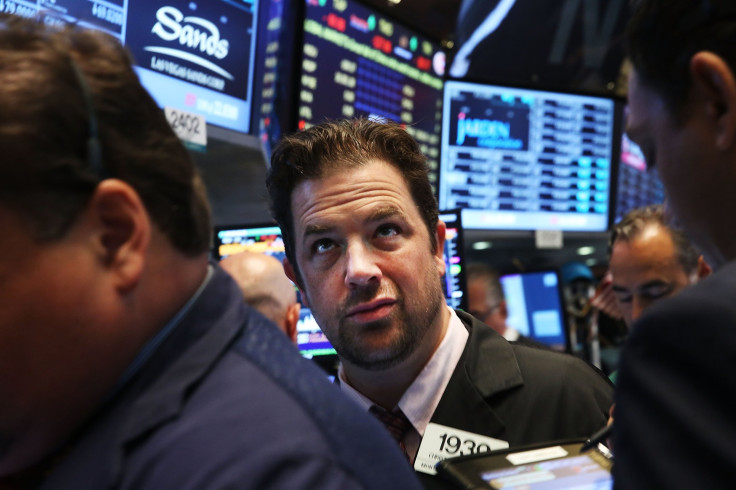Investors Ride Out 'Black Monday' Mania With Caution, Optimism, Heeding Expert Advice

The Dow Jones Industrial Average’s 1,000-point opening plunge Monday morning sparked frenzied talk of a “Black Monday.” But by the afternoon, with the index showing losses under 200 points, it had turned into just another day on Wall Street. Many small, retail investors hung on with caution. Some even said they saw opportunity.
“I’m worried,” said Brian Sherman, exiting a Fidelity Investments investor center in the Upper West Side of Manhattan as the Dow Jones posted losses of about 500 points. A 48-year-old TV producer, Sherman was checking up on a college savings fund for his two young daughters, aged 4 and 6, that tracks the S&P 500. Still, he wasn’t cashing out: “If I’m in it for the long run, I can just afford to sit it out for a while,” he said. “I’ve got another 15 years to wait for it to back up again.”
Experts say Sherman's is typically the right move. Robert Godby, a professor at the University Of Wyoming, is the director of the department of economics and finance, and also teaches a class on personal finance. He said down-and-up swings in the market provide a perfect example of advice he gives his students: Tune it out.
“Nothing good can come from selling on a day like today,” Godby told International Business Times. “Hang on for the ride. This is what you signed up for when you chose to invest in the markets. We have day-to-day volatility.”
An accountant who declined to provide his name for professional reasons shrugged off the early morning market woes in midtown. He says he sticks only to cash investments precisely for this reason. “I knew this was going to happen sooner or later,” he said.
A clerk at one Manhattan branch acknowledged that Monday’s traffic was normal. Things are generally pretty calm in the summer, she said. Outside, there were few signs of panic: No lines or passersby fixated at the television screens broadcasting major losses.
Some investors saw opportunity in the downturn.
Andrew Rak, a corporate lawyer, cheered the losses. “As far as I’m concerned, this is a healthy correction,” he said. “I’m going to double down on my stocks” -- Apple and Visa. “Apple is a great company and Visa has a great business model.” Rak said he wasn’t too concerned about his other investments, since they would ride out the temporary plunge. But with stocks bottoming out, he was looking to reinforce his positions.
A Manhattan real estate developer leaving a Fidelity storefront said he had just decided to invest $52,000, but was still sorting out the details. “I’m not a sophisticated investor,” he said. “But I wanted to get in on the cheap.”
That's often a good idea, according to Roger Ibbotson, a professor at the Yale School of Management, and the chairman and chief investment officer of Zebra Capital, an investment and hedge fund manager. “As a long-term investor, sometimes the best times to buy are after a big drop," he said.
Ken Schimpf designs commercial kitchens for restaurants. On Monday, he decided to invest $5,000 in his 401k. “I was going to do it soon anyways,” he said, but figured the day’s losses made it an opportune time to to get in. “I’m concerned about the economy,” he acknowledged -- but less about his investments, which are all long-term. Sputtering growth in the restaurant industry has more a direct impact on his financial well-being than stock market fluctuations.
Others likely felt even more detached from Wall Street’s early morning hiccups. Today, only 55 percent of Americans are invested in the stock market, as a recent Gallup poll found, down from 65 percent in 2007. Most people in the United States derive their income from wages -- a form of compensation that remains frustratingly stagnant. Average hourly pay is up just 2 percent over the last year, barely keeping pace with inflation.
Catherine Dunn also contributed to this report.
© Copyright IBTimes 2024. All rights reserved.












